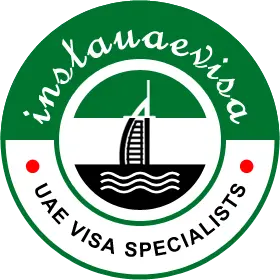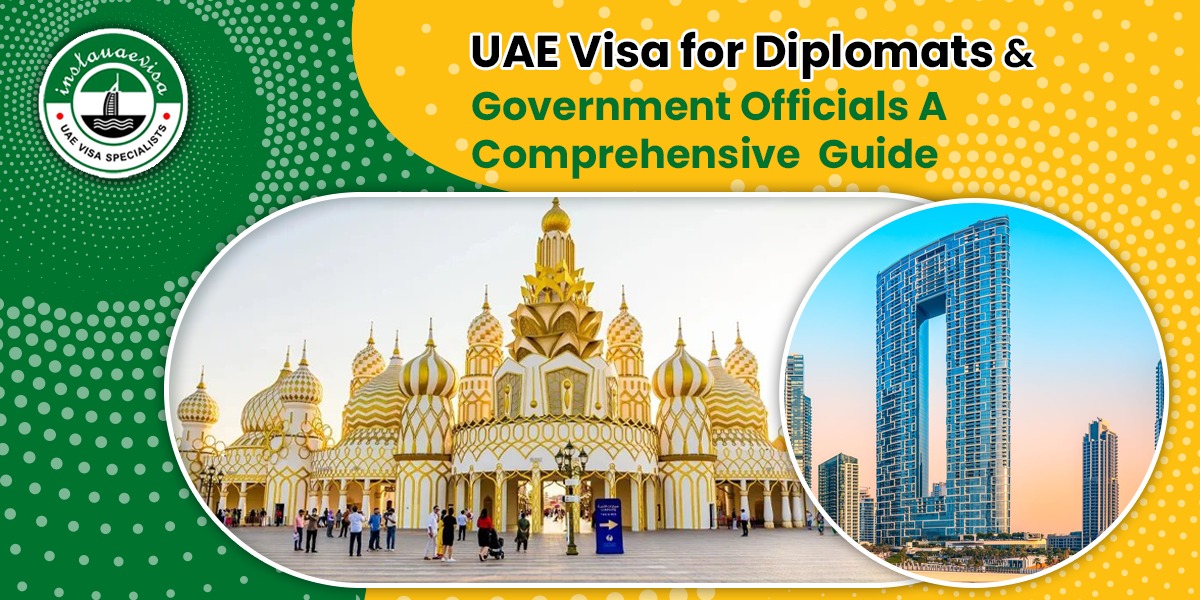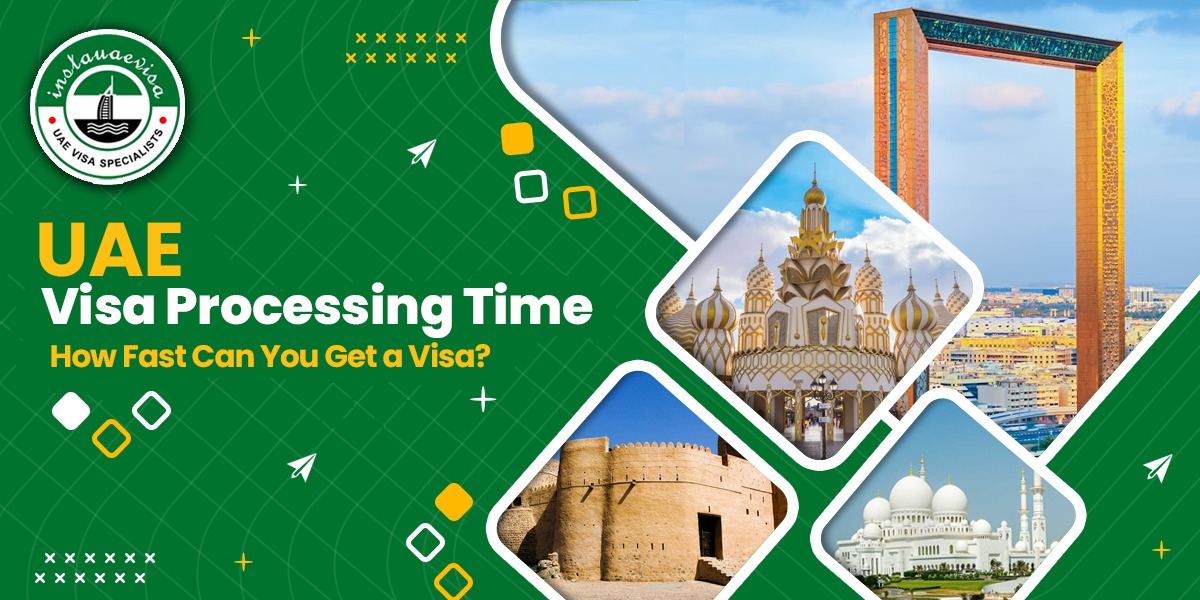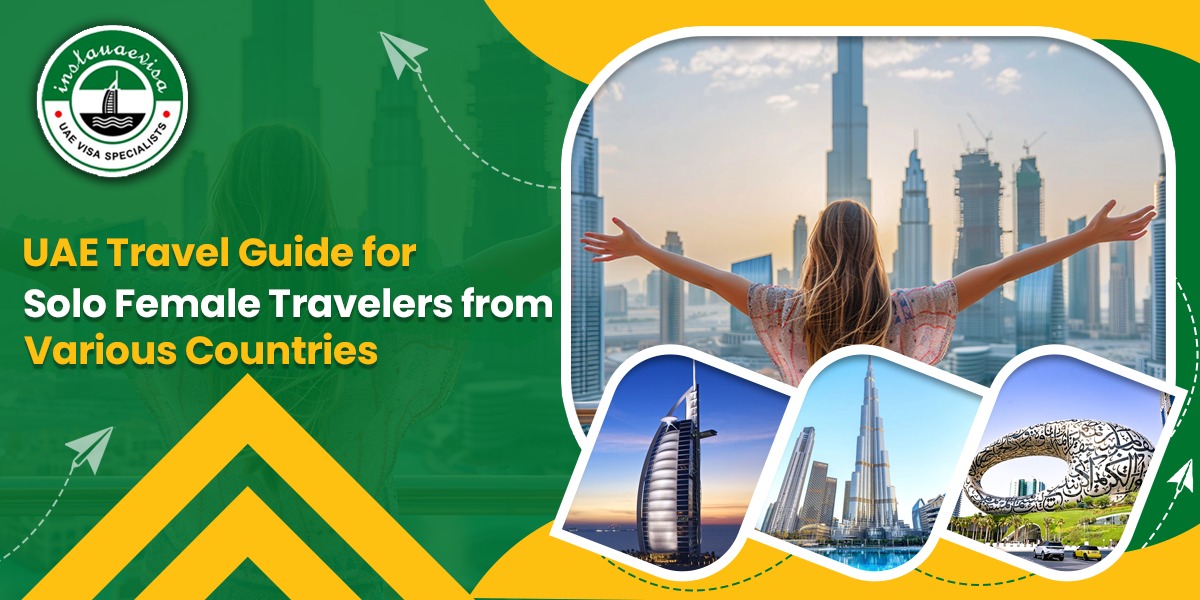The United Arab Emirates, with its strategic geopolitical position and growing diplomatic significance, welcomes thousands of diplomats and government officials annually. Understanding the visa requirements and procedures for diplomatic missions and government representatives is crucial for ensuring smooth diplomatic relations and official visits.
This comprehensive guide addresses everything diplomats and government officials need to know about obtaining visas for the UAE—from application procedures to privileges granted under diplomatic status. Whether you're a career diplomat being posted to the UAE or a government official visiting for a short-term mission, this guide will help navigate the specific visa requirements that apply to your status.
Understanding UAE Diplomatic Visas
The UAE offers specialized visa categories for diplomats and government officials that reflect the unique nature of their roles and responsibilities. These visas facilitate diplomatic missions and strengthen international relations while providing special privileges not available through standard visa channels.
Types of Diplomatic and Official Visas
Diplomatic Visa
The Diplomatic Visa is issued to accredited diplomats, high-ranking officials, and their immediate family members. Holders of diplomatic passports qualify for this visa category, which generally provides:
- Extended stay durations
- Multiple entry options
- Expedited processing
- Certain immunities and privileges as per international diplomatic protocols
Official/Service Visa
This visa category serves government officials traveling for official purposes who don't hold diplomatic passports but rather service or official passports. These visitors may include:
- Mid-level government employees
- Technical and administrative staff of diplomatic missions
- Representatives of international organizations
- Military personnel on official assignments
Special Mission Visa
For government delegations attending specific events, conferences, or participating in bilateral talks, the UAE may issue Special Mission Visas with customized validity periods matching the duration of the specific assignment.
Application Process for Diplomatic and Official Visas
For Accredited Diplomats Posted to the UAE
- Official Communication: The sending country's Foreign Ministry must submit a Verbal Note to the UAE's Ministry of Foreign Affairs and International Cooperation (MOFAIC) through diplomatic channels.
- Documentation Requirements:
- Completed visa application form
- Diplomatic passport valid for at least six months
- Official appointment letter specifying the role and duration of posting
- Verbal Note from the sending ministry detailing the diplomat's mission
- Recent passport-size photographs
- For family members: marriage certificates, birth certificates, and other relevant family documentation
- Processing Channel: Applications are processed through diplomatic channels rather than through standard immigration procedures. The UAE embassy in the sending country typically coordinates with MOFAIC.
- Visa Issuance: Upon approval, the visa is usually issued as a multiple-entry visa valid for the duration of the diplomatic assignment or as specified in the Verbal Note.
For Government Officials on Short-Term Missions
- Sponsorship: The receiving UAE government entity or the diplomatic mission of the official's country in the UAE generally acts as the sponsor.
- Application Procedure:
- The sponsoring entity submits the request to MOFAIC
- The official's home government may send a Verbal Note supporting the visa application
- Required documentation is similar to that for diplomats but tailored for short-term visits
- Processing Time: Expedited processing is usually available for government officials, with visas often granted within 3-5 working days.
Required Documentation
For All Diplomatic and Official Visa Applicants
- Passport: Diplomatic, official, or service passport with minimum six months validity
- Photographs: Recent passport-sized photographs with white background
- Visa Application Form: Completed and signed
- Official Letter: Detailing the purpose of visit, duration, and responsibilities
- Verbal Note: From the sending ministry or diplomatic mission
Additional Documents for Long-Term Diplomatic Postings
- Assignment Letter: Official document detailing the position, responsibilities, and duration of posting
- Medical Reports: Some postings may require basic health screenings
- Family Documents: For accompanying family members (marriage certificates, birth certificates)
- Educational Credentials: For family members who will attend educational institutions in the UAE
Privileges and Immunities
Diplomats and government officials entering the UAE on official visas enjoy certain privileges in accordance with the Vienna Convention on Diplomatic Relations and bilateral agreements.
For Diplomatic Visa Holders
- Exemption from immigration procedures at designated diplomatic terminals
- Immunity from jurisdiction as per diplomatic protocols
- Exemption from customs duties for personal effects
- Priority processing at various government departments
- Freedom of movement within the UAE
- Special vehicle registration procedures
For Official/Service Visa Holders
- Expedited entry procedures
- Partial exemptions from customs duties
- Access to specific government services through diplomatic channels
- Facilitated accommodation arrangements
Residence and ID Cards for Long-Term Diplomatic Missions
Diplomats and government officials posted to the UAE for extended periods receive:
- Diplomatic ID Card: Issued by MOFAIC, this serves as both identification and residence permit
- Residence Permit: For non-diplomatic family members
- Protocol Card: Indicating the diplomatic rank and entitlements
The Diplomatic ID Card is processed through the Protocol Department of MOFAIC and typically requires:
- Completed application form
- Copy of the diplomatic passport
- Assignment letter
- Photographs
- Verbal Note confirming the posting
Renewal and Extension Procedures
For Long-Term Diplomats
Diplomatic visas and ID cards generally require renewal based on:
- The continuing diplomatic assignment
- Updated Verbal Notes confirming the extension
- Validity of the diplomatic passport
The renewal process should commence at least 30 days before expiration through MOFAIC.
For Government Officials on Temporary Missions
Extensions for temporary official visas require:
- Request letter from the sponsoring entity explaining the need for extension
- Updated Verbal Note if applicable
- Submission to MOFAIC or the General Directorate of Residency and Foreigners Affairs (GDRFA) depending on the visa category
Traveling with Family Members
Diplomats and high-ranking government officials can include immediate family members on their diplomatic visas. The definition of "immediate family" typically includes:
- Spouse
- Unmarried children under 18 years of age
- Dependent parents in some cases
The application process for family members requires:
- Inclusion in the original Verbal Note
- Proof of relationship (marriage certificates, birth certificates)
- Diplomatic or regular passports depending on the sending country's protocols
- Separate application forms for each family member
Special Considerations for International Organizations
Representatives of international organizations like the United Nations, World Bank, or International Monetary Fund follow slightly different procedures:
- The international organization submits an official request to MOFAIC
- The request includes details of the assignment and expected duration
- Special visa categories may apply based on bilateral agreements between the UAE and the organization
- United Nations laissez-passer holders have specific entry protocols
Emergency and Urgent Visa Procedures
For diplomatic emergencies or urgent government missions, expedited processing channels exist:
- Emergency Diplomatic Note: The sending mission issues an emergency Verbal Note highlighting the urgency
- Direct Communication: Direct communication between the diplomatic missions and MOFAIC's emergency protocol department
- Airport Visas: In exceptional circumstances, arrangements can be made for visa issuance upon arrival for diplomatic passport holders
Post-Arrival Procedures
Upon arrival in the UAE, diplomats and government officials should complete several important steps:
- Registration with MOFAIC: Within the first week of arrival for long-term diplomats
- Medical Examination: For long-term residents, as required
- Diplomatic ID Card Application: For posted diplomats and their eligible family members
- Embassy Registration: Registration with their own embassy or consulate in the UAE
Responsibilities of Diplomatic and Official Visa Holders
While enjoying diplomatic privileges, visa holders must adhere to certain responsibilities:
- Respecting UAE laws and regulations
- Limiting activities to official purposes as stated in the visa application
- Notifying MOFAIC of any significant changes in status or assignment
- Following proper exit procedures upon completion of the diplomatic mission
Exit Procedures
When completing a diplomatic assignment or official mission:
- Notification: The diplomatic mission should notify MOFAIC of the diplomat's departure
- Cancellation of ID Cards: Diplomatic ID cards must be returned to MOFAIC
- Final Clearances: Various clearances may be required depending on the length of stay
- Exit Permit: In some cases, a formal exit permit may be needed
Diplomatic Missions in the UAE
The UAE hosts over 100 diplomatic missions in Abu Dhabi, with additional consular offices primarily located in Dubai. These missions play a crucial role in:
- Facilitating visa applications for their nationals
- Providing guidance on protocol matters
- Assisting with communication between governments
- Supporting their citizens during official visits
Common Challenges and Solutions
Documentation Delays
Solution: Engage with the Protocol Department of MOFAIC directly through your diplomatic mission to expedite the process.
Family Member Visa Issues
Solution: Ensure all family relationships are clearly documented and included in the original Verbal Note.
Status Changes During Assignment
Solution: Any changes in diplomatic status should be immediately communicated through a new Verbal Note from the sending mission.
Conclusion
The UAE has established efficient systems for welcoming diplomats and government officials from around the world, recognizing their unique status and requirements. By following the proper channels and providing complete documentation, diplomatic missions can ensure smooth visa processing for their representatives.
The specialized visa categories for diplomats and government officials reflect the UAE's commitment to international diplomacy and cooperation. These tailored immigration procedures help facilitate important diplomatic work, strengthening the UAE's position as a global diplomatic hub.
For the most current information regarding diplomatic and official visas, direct communication with MOFAIC through proper diplomatic channels remains the most reliable approach, ensuring that all requirements are met according to the latest regulations.




